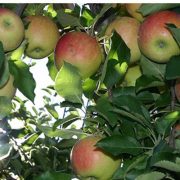Access Equipment Jobs: Farm Worker
We’ve all been taught that Australia was built on the backs of sheep, but today, only a tiny fraction of our population lives in rural areas. Nevertheless, agriculture remains a $40 billion industry and agricultural products still represent one of our strongest export sectors. Plus, Australian agriculture has never been more diversified.
Today’s jackaroos may have a post-secondary education
Forget the old image of the solitary jackaroo, however, today’s farm workers are well-educated and work in a sophisticated, high tech industry. Although you can still be trained as a jackaroo, you’d have to travel to Kimberley or Dubbo to take the TAFE (Technical and Further Education) programs.
As of 2010, 77,000 students were enrolled in Vocational Education and Training for agriculture, and there are a wide range of specialist courses available. You’ll have a leg up in the industry if you already have training in access equipment operation. Special courses for using lifts in agriculture are available. The main program is for load shifting – this is very important in farm work because of the huge range of situations you may find yourself in on a farm.
Lifting equipment on the farm
There are specialised machines for agriculture: bale lifters for handling animal feed, overhead slewing lifts for moving feed inside, and skid-steer loaders, often found in poultry operations, where manure needs to be cleared from barns. These little machines are named skid-steer loaders because the left-side wheels have a separate drive mechanism from the right-side wheels, so to turn, you keep one side stationary and put the other side into operation, effectively skidding to turn. You will also commonly find various types of cherry pickers because of their versatility.
Asset rich, but cash poor
Agricultural work makes up only 2.5% of Australian employment, but the multiplier effect from those jobs is huge. Food retailing employs 430,000, for example, and food product manufacturing another 210,000. Farm workers average about $19.50 an hour, and the pay doesn’t necessarily go up with experience. Make it to farm manager, and you can expect wages in the neighbourhood of $55,000. Agricultural mechanics make a bit more than that, and agricultural engineers can expect to make about $75,000 per annum.
Most of the people who work on Australia’s 135,000 farms were born to it. Family farms make up more than half that total, and their owners are often characterised as being asset rich and disposable income poor. Monthly wages are low, but the value of their properties and equipment is very high. However, most farmers aren’t in it for the money. Farming is a lifestyle. It’s never likely to be boring, as farm workers are called on to do all kinds of tasks.
As with other industries, communications technologies have had a huge impact on agriculture. So, in addition to record-keeping, animal care, equipment maintenance, heavy equipment operation and animal breeding, today’s farmer should add software troubleshooting and internet research to their list of qualifications.



